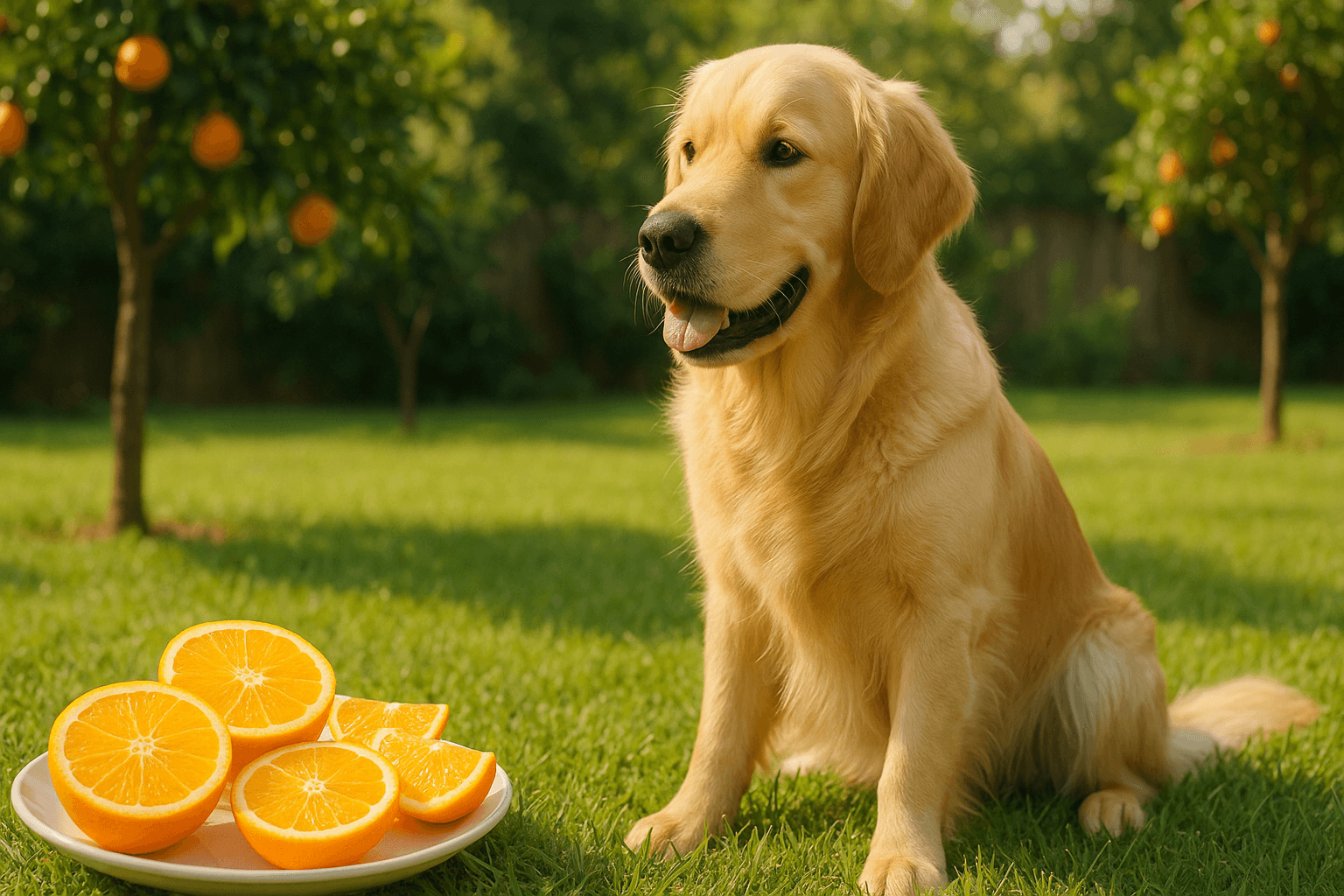If you’ve ever peeled a sweet, juicy orange and found your dog staring at you with those irresistible eyes, you’ve probably wondered: “Can I feed my dog oranges?”
The short answer is yes—but with some important caveats.
Are Oranges Good for Dogs?
Yes, oranges are generally safe for dogs to eat in moderation, and they can even offer a few nutritional benefits.
Nutritional Benefits:
- Vitamin C – Supports immune health
- Potassium – Good for muscles and heart
- Fiber – Aids digestion
- Natural sugars – Quick energy (but not ideal for all dogs)
Are Oranges Harmful to Dogs in Any Way?
While oranges aren’t toxic to dogs, they can cause issues if fed improperly or in excess.
Potential Downsides:
- Stomach upset from too much citrus
- High sugar content – Not ideal for diabetic or overweight dogs
- Peels and seeds – Can cause blockages or digestive issues
Can Dogs Have Citrus Fruit in General?
Dogs can eat some citrus fruits like oranges and tangerines, but others—like lemons and limes—are too acidic and should be avoided.
Safe citrus (in moderation):
- Oranges
- Mandarins
- Tangerines
Better to avoid:
- Lemons
- Limes
- Grapefruit
How to Safely Feed Oranges to Your Dog
- Peel it first – The peel is hard to digest
- Remove seeds – Seeds are choking hazards
- Start small – Test with a tiny segment
- Limit quantity – 1–2 segments for small dogs; up to ½ an orange for large breeds
- Avoid excess sugar – Skip if your dog is diabetic or overweight
Tip: Freeze orange slices for a refreshing summer treat!
Real-Life Example: What Happened When I Gave My Labrador an Orange
My Labrador, Daisy, loved a small slice of orange—but when I gave her two full slices, she ended up with a mild stomach upset. Since then, she only gets an occasional slice on hot days. Less is more!
Common Mistakes Pet Parents Make with Oranges
- Feeding the peel
- Giving too much fruit
- Not considering health conditions like diabetes
- Overlooking allergy signs or digestive sensitivity
Recommended Products for Healthy Treating
Final Verdict: Are Oranges Safe for Dogs?
Yes, dogs can eat oranges in small amounts—just avoid the peel and seeds and keep an eye out for tummy trouble. Treats like oranges should be occasional, not part of a daily diet.
Let’s Wrap It Up — And Hear From You!
Have you ever shared oranges with your dog? Tell us in the comments!
Found this helpful? Don’t forget to:
- Bookmark the article
- Share with fellow dog lovers
- Check out more healthy human foods dogs can eat
Frequently Asked Questions (FAQs)
1. Can dogs eat oranges?
2. Are oranges poisonous to dogs?
3. Can dogs have citrus fruit in general?
4. What are the risks of feeding oranges to dogs?
5. How many orange slices can I give my dog?

About SniffnTail
SniffnTail is your go-to destination for everything pets. From helpful advice, tips, and insights to thoughtfully selected products and resources, we’re here to support pet owners at every stage of their journey. Whether you're caring for a playful pup, a wise old cat, or anything in between, SniffnTail offers tools and knowledge to make pet parenting easier and more joyful.
Related Articles
 Nutrition • 5 mins Read
Nutrition • 5 mins ReadThe Best Dog Food by Breed: A Comprehensive Guide
Feeding your dog a diet tailored to its breed can significantly enhance its health, energy, and longevity. Different breeds have unique needs due to their size, metabolism, activity level, and genetic predispositions. Here is a detailed guide to the best types of food for various dog breeds
 Nutrition • 5 mins Read
Nutrition • 5 mins ReadCoconut Oil for Dogs: Benefits, Uses & Safety Tips Every Pet Parent Should Know
Coconut oil has made its way from kitchen shelves to wellness routines—and now, it’s a rising star in the world of pet care. If you’re a dog parent wondering whether coconut oil is good for dogs, the short answer is yes—but with some precautions. This natural remedy has gained popularity for its range of potential health benefits, from shiny coats to digestive support.
 Nutrition • 6 min read
Nutrition • 6 min readCan Dogs Eat Raspberries? A Vet-Backed Guide for Pet Parents
Wondering if dogs can eat raspberries? This friendly, vet-backed guide explains the benefits, risks, and best ways to feed raspberries to your furry friend.

